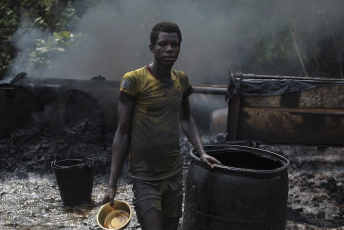Sudan has been associated with human trafficking since the 1980s, and over the past four decades has become a source, transit and destination country for victims of this crime. The state has grappled with human trafficking in various forms, including abductions, forced labour, slavery and the torturing and kidnapping of Eritrean migrants.
Internal factors that have fuelled human trafficking include the presence of a corrupt government with an unchecked military, although it is the strategic position of the country – cutting across North, Central and East Africa – that has turned Sudan into a hub for trafficking networks.
According to Frontex, the European Border and Coastguard Agency, more than 2 000 Sudanese nationals crossed the Central Mediterranean to Europe in 2018. It is also likely that many of the almost 4 000 Eritreans who crossed would have transited through Sudan.
According to the US Department of State, traffickers in Sudan have increasingly recruited men under false pretences of employment, and children for forced labour. Additionally, Sudanese women have become vulnerable to domestic and sexual slavery. (Both domestic and sex slavery can be considered as forms of human trafficking.)
In August 2018, close to 100 victims of trafficking were rescued through Operation Sawiyan, which INTERPOL coordinated with Sudanese police officers. Some 85 of the victims were children. INTERPOL’s Executive Director of Police Services Tim Morris pointed out that the trafficked victims, who were likely migrants en route to Europe, were from diverse neighbouring countries including Eritrea, Congo, South Sudan and Sudan itself. The human trafficking networks had then diverted the victims into other secondary criminal activities.
In 2014, the Sudanese parliament passed the Combating of Human Trafficking Act. As the country’s first law to deal specifically with human trafficking, it was intended to align with the United Nations (UN) definitions on the crime of human trafficking. At its onset, the act called for the establishment of the National Committee for Combating Human Trafficking (NCCT) as the highest authority for combating and addressing this crime. The NCCT is also tasked with developing a national strategy to address the causes of human trafficking. In October 2014, Sudan hosted the African Union’s first regional conference on human trafficking and smuggling in the Horn of Africa (HoA).
Later in 2014, Sudan hosted a European Union (EU)-HoA inter-regional forum on migration, known as the Khartoum Process. The Khartoum Process is a political platform among EU, North and East African countries on the migration route between the HoA and Europe. Through its migration management programme, the Khartoum Process is not only a platform for combating illegal migration, but also prioritises providing protection from violence, abuse and exploitation to those trafficked within and from Sudan and the rest of the HoA. Commitment from member countries is emphasised as key in achieving the outcomes of the process.
In 2017, the NCCT launched its first action plan to combat human trafficking, with the support and cooperation of development partners. The main pillars of the plan are to safeguard people against trafficking by strengthening the criminal justice system to investigate, prosecute and punish traffickers, and secure justice for victims. However, thus far, the action plan has not recorded any notable impacts.
In mid-2018, Vice-President Hassabo Abdel-Rahman said that the government was considering establishing a strategy to combat human trafficking that would be in line with international standards and mechanisms. However, no significant steps have been reported since then in terms of successful investigations, arrests or prosecutions of traffickers. In addition, it is still not clear how the action plan and the strategy will strengthen the Khartoum Process, as no meaningful data has been declared by the government to link its commitment to combat trafficking with actual impact.
Even though Sudan ratified both the Protocol to Prevent, Suppress and Punish Trafficking in Persons, especially Women and Children, and the UN Convention against Transnational Organised Crime, the state has had limited success in implementing its plans and strategies to curb human trafficking. Successful implementation would require boosting the rule of law in the country, so that investigations can translate into arrests and prosecutions.
Mohamed Daghar, Researcher, ENACT project, ISS







